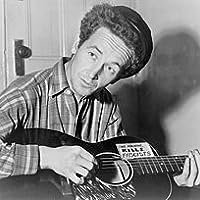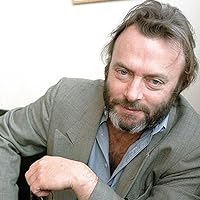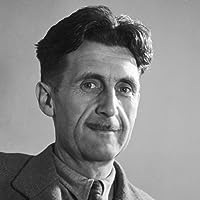Spanish Civil War Quotes
Quotes tagged as "spanish-civil-war"
Showing 31-41 of 41

“You will never find peace with these fascists
You'll never find friends such as we
So remember that valley of Jarama
And the people that'll set that valley free.
From this valley they say we are going
Do not hasten to bid us adieu
Even though we lost the battle at Jarama
We'll set this valley before we're through.
All this world is like this valley called Jarama
So green and so bright and so fair
No fascists can dwell in our valley
Nor breathe in our new freedoms air.”
―
You'll never find friends such as we
So remember that valley of Jarama
And the people that'll set that valley free.
From this valley they say we are going
Do not hasten to bid us adieu
Even though we lost the battle at Jarama
We'll set this valley before we're through.
All this world is like this valley called Jarama
So green and so bright and so fair
No fascists can dwell in our valley
Nor breathe in our new freedoms air.”
―

“Men speak of God’s love for man… but if providence does not come in this hour, where is He then? My conclusion is simple. The Semitic texts from Bronze Age Palestine of which Christianity is comprised still fit uncomfortably well with contemporary life. The Old Testament depicts a God capricious and cruel; blood sacrifice, vengeance, genocide; death and destruction et al. Would He not approve of Herr Hitler and the brutal, tribalistic crusade against Hebrews and non-Christian ‘untermensch?’
One thing is inarguable. His church on Earth has produced some of the most vigorous and violent contribution to the European fascist cause.
It is synergy. Man Created God, even if God Created Man; it all exists in the hubris and apotheosis of the narcissistic soul, and alas, all too many of the human herd are willing to follow the beastly trait of leadership. The idea of self-emancipation and advancement, with Europe under the jackboot of fascism, would be Quixotic to the point of mirthless lunacy.”
― Jackboot Britain
One thing is inarguable. His church on Earth has produced some of the most vigorous and violent contribution to the European fascist cause.
It is synergy. Man Created God, even if God Created Man; it all exists in the hubris and apotheosis of the narcissistic soul, and alas, all too many of the human herd are willing to follow the beastly trait of leadership. The idea of self-emancipation and advancement, with Europe under the jackboot of fascism, would be Quixotic to the point of mirthless lunacy.”
― Jackboot Britain

“Having confronted the world with little except a battered typewriter and a certain resilience, he can now take posthumous credit for having got the three great questions of the 20th century essentially 'right.' Orwell was an early and consistent foe of European imperialism, and foresaw the end of colonial rule. He was one of the first to volunteer to bear arms against fascism and Nazism in Spain. And, while he was soldiering in Catalonia, he saw through the biggest and most seductive lie of them all—the false promise of a radiant future offered by the intellectual underlings of Stalinism.”
―
―

“[The POUM] posters, designed for a wider public (posters are important in Spain, with its large illiterate population).”
― Homage to Catalonia
― Homage to Catalonia

“As time went on, the Communists and the POUM wrote more bitterly about one another than about the Fascists.”
― Homage to Catalonia
― Homage to Catalonia

“Glory of war, indeed! In war, all soldiers are lousy, at least when it is warm enough. The men who fought at Verdun, at Waterloo, at Flodden, at Senlac, at Thermopylae -- every one of them had lice crawling over his testicles.”
― Homage to Catalonia
― Homage to Catalonia

“In The Captive Mind, written in the early 1950s, Czeslaw Milosz wrote that Eastern European intellectuals, reading 1984 in clandestine editions, were amazed to find that its author had never visited the Soviet Union. How, then, had he captured its mental and moral atmosphere? By reading its propaganda, and by paying attention, and by noticing the tactics of Stalin's agents in the Spanish Republic. Anybody could have done this, but few had the courage to risk the accusation of 'giving ammunition to the enemy.”
―
―

“Aquel gentío, aquellos gritos, 《¡Franco! ¡Franco! ¡Franco!》, aquellas banderas españolas... Nadie trabajaba esa tarde. Las empresas habían dado permiso a sus empleados para ir a recibir al 《salvador》de la patria. Y la gente, como una alfombra extendida sobre las calles, lo llenaba todo, hasta el último rincón. ¿La misma gente que había luchado por la República? ¿La misma cuyos padres, maridos o hijos habían caído en el frente? ¿La misma que soportó los atroces bombardeos que buscaban crear el máximo miedo en la población civil? ¿La misma que pasó hambre y frío? Aquella mañana del 26 de enero de 1939, viendo a las tropas victoriosas entrando por la Diagonal, se preguntó de dónde sacaban los supervivientes las banderas, y si el entusiasmo y la alegría eran reales o un simple alivio por el fin de la guerra. Habían pasado poco más de diez años y todo seguía igual o... Banderas, saludos fascistas, gritos de adhesión al vencedor.
¿Tan rápido el olvido?
¿Tanta necesidad de paz a cualquier precio?
¿Tanto miedo que masticar y tragar con tal de seguir adelante?
¿Y los más de cien mil cadáveres enterrados en cunetas y montañas, fosas comunes y cementerios, a la espera de un tiempo mejor en el que volver a merecer un respeto y recuperar su dignidad, mientras el régimen seguía fusilando y aumentando la cuenta?
El dictador volvía por tercera vez a Barcelona y allí estaba la ciudad rendida a sus pies.
Tal vez los que permanecían en sus casas fueran más numerosos, mucho más, pero ellos callaban.
También lo hacían algunos de los presentes, obligados a presenciar toda aquella parafernalia porque si no podían ser represaliados por sus empresas, que en caso de estar lejos habían puesto autocares para la movilidad de sus empleados. Era un día sin excusas. Hasta los enfermos debían curarse milagrosamente.”
―
¿Tan rápido el olvido?
¿Tanta necesidad de paz a cualquier precio?
¿Tanto miedo que masticar y tragar con tal de seguir adelante?
¿Y los más de cien mil cadáveres enterrados en cunetas y montañas, fosas comunes y cementerios, a la espera de un tiempo mejor en el que volver a merecer un respeto y recuperar su dignidad, mientras el régimen seguía fusilando y aumentando la cuenta?
El dictador volvía por tercera vez a Barcelona y allí estaba la ciudad rendida a sus pies.
Tal vez los que permanecían en sus casas fueran más numerosos, mucho más, pero ellos callaban.
También lo hacían algunos de los presentes, obligados a presenciar toda aquella parafernalia porque si no podían ser represaliados por sus empresas, que en caso de estar lejos habían puesto autocares para la movilidad de sus empleados. Era un día sin excusas. Hasta los enfermos debían curarse milagrosamente.”
―

“Era tan guapa que dolía. Una muñeca todavía perfecta, al borde de la rotura que la vida y la miseria le impondrían.”
― Dos días de mayo
― Dos días de mayo
“Poem
Heart of the heartless world,
Dear heart, the thought of you
Is the pain at my side,
The shadow that chills my view.
The wind rises in the evening,
Reminds that autumn is near.
I am afraid to lose you,
I am afraid of my fear.
On the last mile to Huesca,
The last fence for our pride,
Think so kindly, dear, that I
Sense you at my side.
And if bad luck should lay my strength
Into the shallow grave,
Remember all the good you can;
Don’t forget my love.”
―
Heart of the heartless world,
Dear heart, the thought of you
Is the pain at my side,
The shadow that chills my view.
The wind rises in the evening,
Reminds that autumn is near.
I am afraid to lose you,
I am afraid of my fear.
On the last mile to Huesca,
The last fence for our pride,
Think so kindly, dear, that I
Sense you at my side.
And if bad luck should lay my strength
Into the shallow grave,
Remember all the good you can;
Don’t forget my love.”
―

“España daba vueltas en círculos desde los días de los Reyes Católicos: guerras, dictaduras, reyes engendrando hijos idiotas con primas, tías y medio hermanas, la Iglesia, el perpetuo anclaje en el pasado, los militares, más guerras, más curas, más incultura...”
―
―
All Quotes
|
My Quotes
|
Add A Quote
Browse By Tag
- Love Quotes 97.5k
- Life Quotes 76k
- Inspirational Quotes 73k
- Humor Quotes 44k
- Philosophy Quotes 29.5k
- Inspirational Quotes Quotes 27k
- God Quotes 26k
- Truth Quotes 23.5k
- Wisdom Quotes 23.5k
- Romance Quotes 23k
- Poetry Quotes 22k
- Death Quotes 20k
- Happiness Quotes 18.5k
- Life Lessons Quotes 18.5k
- Hope Quotes 18k
- Faith Quotes 18k
- Quotes Quotes 16.5k
- Inspiration Quotes 16.5k
- Spirituality Quotes 15k
- Religion Quotes 15k
- Motivational Quotes 15k
- Writing Quotes 15k
- Relationships Quotes 14.5k
- Life Quotes Quotes 14k
- Love Quotes Quotes 14k
- Success Quotes 13.5k
- Time Quotes 12.5k
- Motivation Quotes 12k
- Science Quotes 11.5k
- Motivational Quotes Quotes 11.5k

